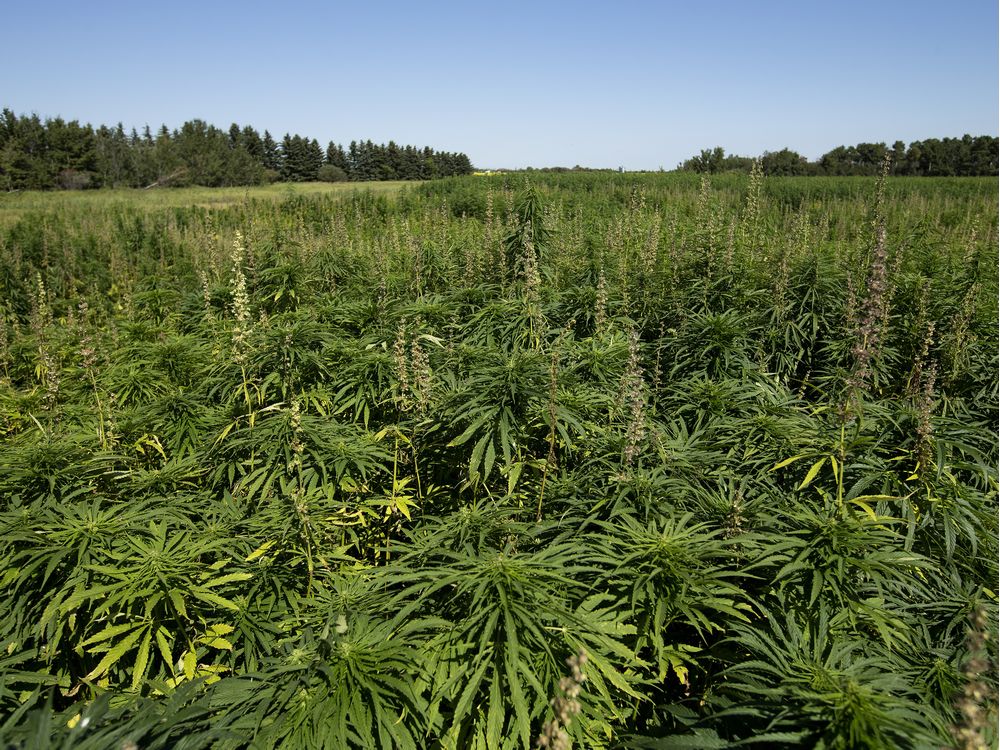You are here
Home 🌿 Marijuana Business News 🌿 Canada's hemp acreage is shrinking, and not just a little 🌿Canada's hemp acreage is shrinking, and not just a little

Despite the country’s shrinking industrial hemp crops — Health Canada figures show production fell from 123,000 acres in 2017 to over 77,000 acres last year — FIGR Inc. has found a way to grow enough high-quality industrial hemp to meet the demands of the emerging CBD market in Canada while competing with the rapidly developing market south of the border.
A made-in-Canada solution
By partnering with trusted local farmers to grow industrial hemp, FIGR’s Craft Cultivator program aids them in diversifying their crop portfolios and gaining entry into the CBD industry, while allowing the Canadian company to expand into industrial hemp products in a way that would be difficult to do solo.
The program has an Industrial Hemp licence from Health Canada, which means FIGR can cultivate, process, import, export and sell industrial hemp consumer goods within Canada. The company has two wholly owned subsidiaries — one in Charlottetown and another in Simcoe, Ont. — with FIGR being a wholly owned indirect subsidiary of Pyxus International, Inc.
“Working with local farmers is a part of FIGR’s DNA,” company president Harvey Carroll noted in an email to The GrowthOp. Citing the facilities in PEI and Ontario, Carroll noted For the Craft Cultivator program, “we’ve chosen to work with a variety of farmers based in southwestern Ontario, not far from our Ontario facility. As this program grows, we’re committed to working with farmers across Canada to grow high-quality hemp for CBD products,” Carroll added.
Local knowledge and expertise
Farmers located close to the Simcoe, Ont. facility have been selected given that they have “proven experience in growing consistently high-quality crops and understand the importance of transparency throughout the supply chain,” he said.
Carroll also noted that farmers receive support from FIGR, including frequent farm visits by field technicians who assist when it comes to pest and disease management, crop nutrition and irrigation practices “to increase crop quality and yields.” FIGR also provides assistance to each farmer to secure his or her individual Industrial Hemp Licence.
As per the Cannabis Act, licensed industrial hemp producers can sell industrial hemp — “cannabis plants whose leaves and flowering heads do not contain more than 0.3 percent THC” — to a company like FIGR that is licensed to process and sell CBD.
Pinning down the market
Carroll told The GrowthOp that profit for individual farmers depends on various factors, including the amount of hemp grown, yield and the ability to meet all testing requirements. Prices for hemp biomass for CBD have declined with more available supply but can still fetch around US$50-US$65 per pound for bulk buys. Hemp biomass is essentially the hemp plant that has been harvested and flowered and shucked and prepared for sale to the CBD extractors and processors.
FIGR is employing a proprietary traceability platform, called SENTRI℠, to trace the industrial hemp products to their final sale, to identify trends and potential opportunities for hemp products.
“As part of the FIGR Craft Cultivation program, farmers must be willing to be fully transparent regarding the cultivation process, and have their cultivation data integrated into SENTRI,” said Carroll.
“With this technology, we ensure we have verifiable, accurate and comprehensive information about our products and how they were grown and processed.”
It is important to note that Industrial Hemp Licence holders are not permitted to make CBD-derivatives and products such as CBD oil without securing a separate cannabis processing licence. Instead, the FIGR program allows farmers to contract their industrial hemp to FIGR, which will go on to process and produce CBD products.
So far, the participating farmers successfully harvested the program’s first crop in October, and planning for the 2020 crop cycle has already started.
Despite the company’s success to date, challenges remain with Canada’s industrial hemp supply. The U.S. Department of Agriculture (USDA) noted in a recent report that Canada’s industrial hemp acreage shrinkage last year has caused Canada to lag behind the U.S. in developing a market for CBD products — despite having a two-decades headstart in hemp agriculture. Canada actually legalized hemp production in 1998, but the industry has grown rather slowly over the past 20 years, producing hemp primarily for food products. Hemp for CBD use has been permitted with cannabis legalization in Canada, but hemp remains strictly controlled. The report did not speculate on why there was a decline in hemp grown in Canada.
Hopes are that with a targeted cultivation strategy, strong prices and a burgeoning market for hemp CBD products, this could soon change.
420 Intel is Your Source for Marijuana News
420 Intel Canada is your leading news source for the Canadian cannabis industry. Get the latest updates on Canadian cannabis stocks and developments on how Canada continues to be a major player in the worldwide recreational and medical cannabis industry.
420 Intel Canada is the Canadian Industry news outlet that will keep you updated on how these Canadian developments in recreational and medical marijuana will impact the country and the world. Our commitment is to bring you the most important cannabis news stories from across Canada every day of the week.
Marijuana industry news is a constant endeavor with new developments each day. For marijuana news across the True North, 420 Intel Canada promises to bring you quality, Canadian, cannabis industry news.
You can get 420 Intel news delivered directly to your inbox by signing up for our daily marijuana news, ensuring you’re always kept up to date on the ever-changing cannabis industry. To stay even better informed about marijuana legalization news follow us on Twitter, Facebook and LinkedIn.




